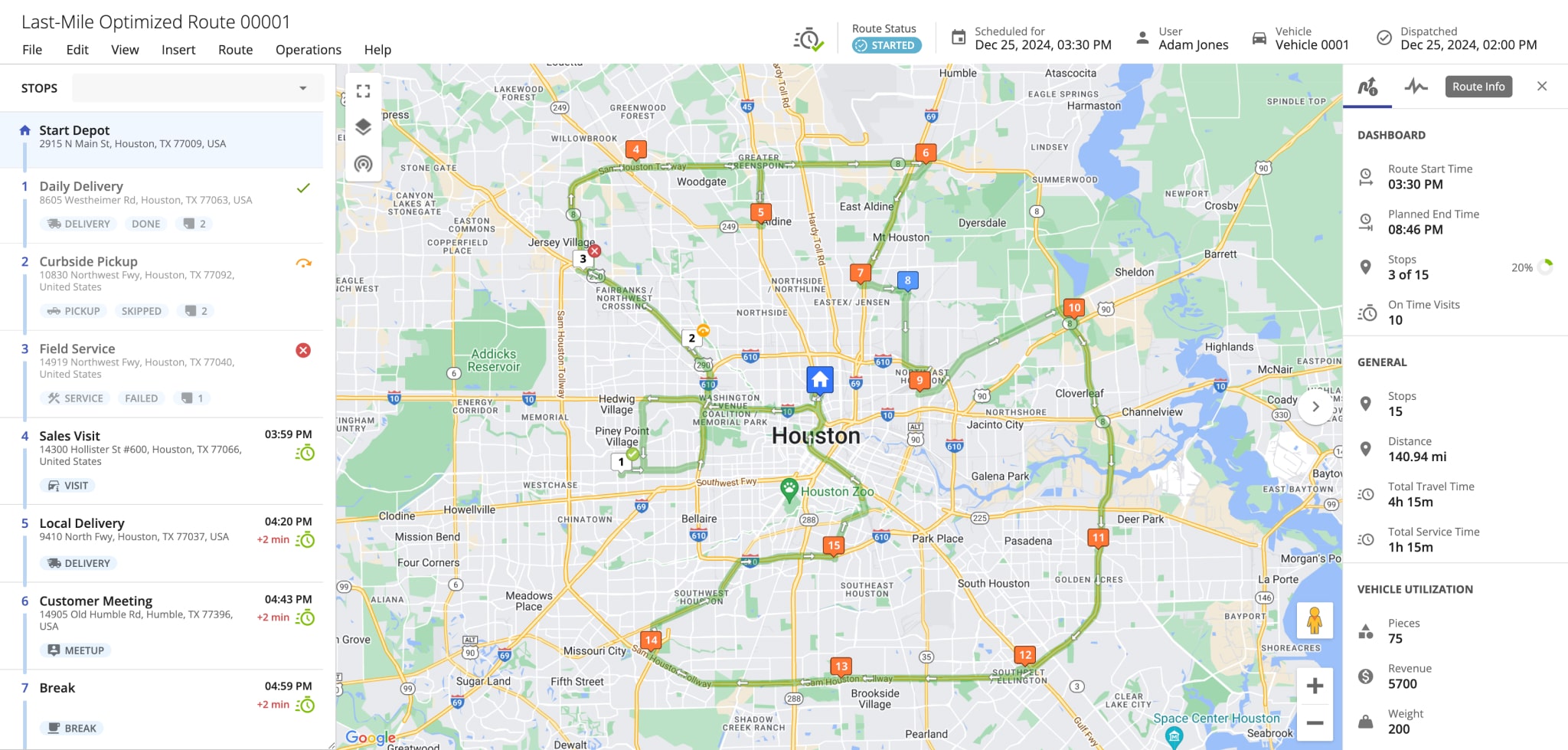Tracking real-time metrics is essential for e-commerce CRM users. It helps businesses stay competitive.
In today’s fast-paced digital market, having up-to-the-minute data is crucial. E-commerce platforms need precise insights to make informed decisions. Real-time metrics offer a clear view of customer behavior, sales trends, and campaign performance. This immediate access to data helps businesses adapt quickly.
It ensures they meet customer needs effectively. With the right tools, e-commerce CRM users can track metrics seamlessly. This leads to improved strategies and better results. Real-time metrics tracking is not just a trend; it’s a necessity for growth and success in e-commerce. Stay tuned as we explore the importance and benefits of this powerful tool.
Importance Of Real-time Metrics
Real-time metrics provide e-commerce CRM users with crucial insights. They allow businesses to respond quickly to changes and opportunities. Understanding these metrics can drive better decision-making. This leads to improved customer satisfaction and higher sales. Let’s explore the importance of real-time metrics in more detail.
Immediate Insights
Real-time metrics offer immediate insights into your business performance. You can see how campaigns are performing in real-time. This allows for quick adjustments to improve results. Immediate insights help in identifying issues before they escalate. They also enable you to capitalize on sudden opportunities. This quick response can lead to higher revenue.
Customer Behavior Analysis
Understanding customer behavior is vital for e-commerce success. Real-time metrics help track customer actions as they happen. This includes what products they view, add to cart, or purchase. Analyzing this data helps in personalizing the shopping experience. Personalization can lead to higher customer satisfaction and loyalty. It also helps in predicting future trends and demands. This makes stock management more efficient.
Credit: databox.com
Key Metrics To Track
In the world of e-commerce, tracking real-time metrics is crucial for CRM users. These metrics help businesses understand customer behavior and improve their strategies. Knowing which metrics to track can make a significant difference.
Curious about CRM and Customer Support? This post offers a deeper understanding. Saas CRMs for Multilingual Customer Support: Boost Global Engagement
Conversion Rates
Conversion rates measure the percentage of visitors who complete a desired action. This could be making a purchase, signing up for a newsletter, or any other goal.
To calculate the conversion rate, use the following formula:
Conversion Rate (%) = (Number of Conversions / Total Visitors) 100
Improving conversion rates can lead to increased sales and revenue. It’s important to monitor these rates regularly and make data-driven decisions.
Here are some tips to improve conversion rates:
- Optimize your website’s user experience
- Use clear and compelling calls to action
- Streamline the checkout process
Customer Lifetime Value
Customer Lifetime Value (CLV) is the total revenue a business can expect from a customer. It helps businesses understand the long-term value of their customers.
To calculate CLV, use this formula:
CLV = (Average Purchase Value) x (Number of Purchases) x (Customer Lifespan)
Knowing the CLV helps businesses allocate resources effectively. It also aids in creating targeted marketing strategies.
Consider these strategies to increase CLV:
- Provide excellent customer service
- Offer loyalty programs
- Regularly engage with customers through email marketing
Tracking these key metrics can help e-commerce businesses thrive. By understanding and acting on real-time data, businesses can enhance their CRM efforts and achieve sustained growth.
Tools For Real-time Tracking
Understanding your e-commerce business performance is crucial. Real-time metrics tracking helps you make quick, informed decisions. By using the right tools, you can stay ahead. Let’s explore the essential tools for real-time tracking.
Crm Software
CRM software is vital for tracking customer interactions. It helps you see customer behavior instantly. With real-time updates, you can understand their needs better.
Popular CRM tools include:
- Salesforce
- HubSpot
- Zoho CRM
These tools offer live dashboards. They provide insights into customer journeys. You can see sales trends and customer feedback immediately. This helps you improve your marketing strategies.
Analytics Platforms
Analytics platforms are another essential tool. They track website and app performance. Google Analytics and Adobe Analytics are widely used.
| Tool | Features |
|---|---|
| Google Analytics | Real-time user tracking, traffic sources, conversion rates |
| Adobe Analytics | Customer segmentation, path analysis, predictive analytics |
These platforms offer detailed reports. You can track user activity in real-time. This data helps you optimize your website. You can identify issues quickly and fix them. This ensures a smooth user experience.

Credit: www.smartlook.com
Dive into CRM and Customer Support and uncover valuable details in this article. Why Does Zoho CRM Have List Descending: Top Benefits Explained
Integrating Metrics With Crm
Integrating metrics with your e-commerce CRM system can enhance how you track and manage customer interactions. This integration provides a comprehensive view of your data. It helps in making informed decisions. It also simplifies workflows and improves customer satisfaction.
Data Synchronization
Data synchronization ensures that your CRM and e-commerce metrics are always up-to-date. It eliminates manual data entry errors. This means you get accurate insights in real-time. You can understand customer behavior better. Data synchronization also helps in maintaining consistent records across platforms.
Unified Dashboard
A unified dashboard brings all your metrics into one place. This makes it easier to monitor your e-commerce performance. You can see sales data, customer interactions, and marketing results together. A unified dashboard saves time and increases efficiency. It allows you to focus on strategic planning and growth.
Optimizing Sales Strategy
Real-time metrics tracking offers valuable insights for e-commerce CRM users. These insights help in optimizing sales strategies. By analyzing these metrics, businesses can adjust their tactics on the fly. This leads to better sales performance and customer satisfaction. Let’s explore some key areas in optimizing sales strategy.
Personalized Marketing
Personalized marketing tailors messages to individual customers. Real-time data helps understand customer behavior and preferences. This information allows for targeted marketing efforts. Personalized offers and recommendations can boost sales. Customers feel valued and are more likely to make a purchase.
Automated Follow-ups
Automated follow-ups ensure no customer is forgotten. These follow-ups can be triggered by various actions. For example, abandoned cart reminders or post-purchase thank yous. Real-time metrics help in scheduling these follow-ups at the right time. Timely follow-ups can significantly increase conversion rates. They also build a stronger customer relationship.
Enhancing Customer Experience
Enhancing customer experience is crucial for e-commerce businesses. Real-time metrics tracking in e-commerce CRM systems can significantly improve customer satisfaction. It allows businesses to understand customer needs better and deliver personalized services.
Tailored Recommendations
Real-time tracking helps in making tailored recommendations to customers. It analyzes their browsing and purchase history. This data helps in suggesting products they are likely to buy. Personalized suggestions make customers feel valued and understood.
Dive into CRM and Customer Support and uncover valuable details in this article. How to Use CRM for Non-Profit Management: Boost Efficiency
Responsive Support
Real-time metrics also boost responsive support. It provides instant insights into customer issues. This allows support teams to address problems quickly. Prompt responses enhance customer trust and loyalty. Customers appreciate quick and effective solutions.
Case Studies Of Success
Real-time metrics tracking has transformed the way e-commerce businesses manage customer relationships. By providing instant insights, businesses can make quick and informed decisions. Let’s explore some real-world examples of how real-time metrics tracking has benefited both small businesses and large enterprises.
Small Business Examples
Many small e-commerce businesses have seen significant improvements with real-time metrics tracking. One such example is a local handmade jewelry store. Before using real-time metrics, they struggled with inventory management. Orders were delayed, and customers were dissatisfied.
After integrating real-time tracking into their CRM, they noticed immediate benefits. Inventory updates were instant. Orders were processed faster. Customer satisfaction improved dramatically. Their sales increased by 30% within three months.
Another small business, a niche clothing retailer, faced challenges with personalized marketing. Their previous marketing efforts were generic and ineffective. By using real-time metrics, they could tailor promotions based on customer behavior. This led to a 25% increase in customer engagement and a 20% rise in repeat purchases.
Large Enterprise Examples
Large enterprises also reap the rewards of real-time metrics tracking. A global electronics retailer is a prime example. With thousands of products and millions of customers, managing data was overwhelming. Real-time metrics streamlined their operations. They could track sales trends and customer preferences instantly.
This led to better inventory management and targeted marketing campaigns. Sales grew by 15% in just six months. Another large enterprise, a multinational skincare brand, used real-time metrics to enhance their customer service. They tracked customer interactions and feedback in real-time. This allowed them to address issues promptly and improve the customer experience.
Their customer satisfaction scores increased by 40%. These case studies highlight the significant impact of real-time metrics tracking on both small and large businesses. It offers a competitive edge and drives growth and customer satisfaction.
Future Trends In Real-time Metrics
Future trends in real-time metrics are transforming the e-commerce CRM landscape. These trends offer businesses new ways to enhance customer experiences. By leveraging advanced technologies, companies can gain deeper insights into customer behavior and preferences. This enables better decision-making and personalized marketing strategies.
Ai And Machine Learning
Artificial Intelligence (AI) and Machine Learning (ML) are pivotal in real-time metrics tracking. They analyze vast amounts of data quickly. This helps in identifying patterns and trends that are not easily visible. AI and ML can improve customer segmentation and targeting.
Here are some key benefits of AI and ML in e-commerce CRM:
- Enhanced data accuracy and efficiency
- Automated customer support
- Personalized product recommendations
With AI, businesses can predict customer needs and offer relevant products. Machine Learning algorithms can optimize pricing strategies. This ensures competitive pricing and maximized profits. Adopting AI and ML can lead to better customer satisfaction and loyalty.
Predictive Analytics
Predictive Analytics is another crucial trend in real-time metrics. It uses historical data to forecast future events. This helps businesses anticipate customer behavior and market trends. Predictive analytics can provide valuable insights for inventory management and marketing campaigns.
Key applications of predictive analytics in e-commerce CRM include:
- Customer churn prediction
- Sales forecasting
- Demand planning
Using predictive analytics, companies can reduce the risk of stockouts and overstocking. They can also tailor marketing efforts to target the right customers at the right time. This leads to increased sales and improved customer retention.

Credit: support.route4me.com
Frequently Asked Questions
What Are Real-time Metrics In E-commerce Crm?
Real-time metrics in e-commerce CRM are live data points. They track customer interactions, sales, and website performance immediately. This data helps businesses make quick, informed decisions.
Why Is Real-time Tracking Important For E-commerce?
Real-time tracking is vital for e-commerce. It helps identify trends, improves customer service, and boosts sales. Immediate insights enable quick adjustments to marketing and inventory strategies.
How Do Real-time Metrics Improve Customer Experience?
Real-time metrics enhance customer experience. They allow businesses to respond promptly to customer needs. Immediate feedback helps in personalizing offers and resolving issues quickly.
What Tools Are Used For Real-time Metrics Tracking?
Various tools are used for real-time metrics tracking. Popular ones include Google Analytics, Salesforce CRM, and HubSpot. These tools provide instant data on customer behavior and sales.
Conclusion
Real-time metrics tracking transforms e-commerce CRM usage. It helps businesses make smart choices quickly. Accurate data leads to better decisions. This improves customer experience and boosts sales. Tracking metrics saves time and reduces errors. Businesses stay ahead in a competitive market.
Using real-time insights ensures growth and efficiency. So, start tracking your metrics now. You’ll see the benefits.










